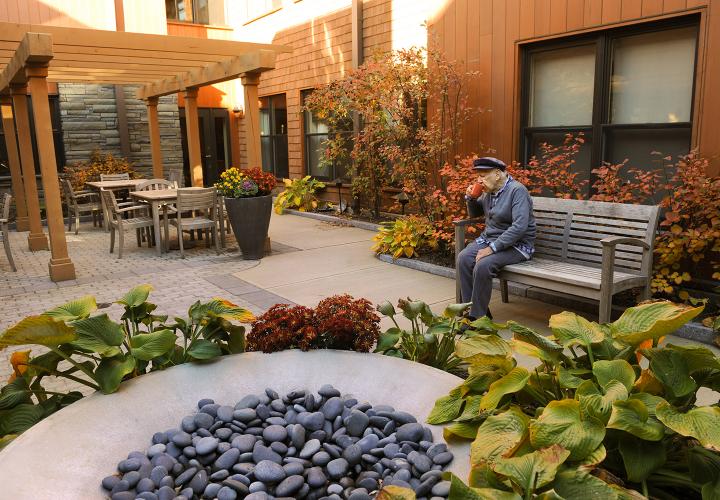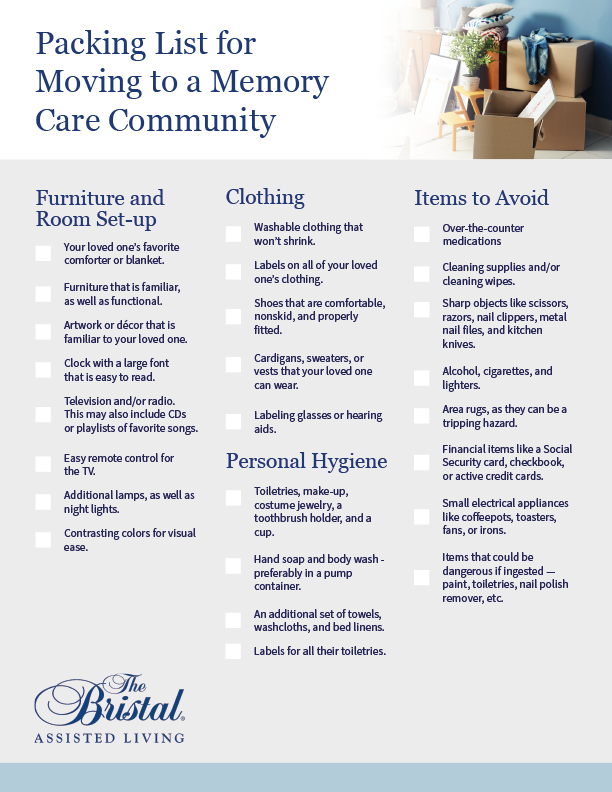Comprehensive Memory Care Programs with Alzheimers Care Charlotte Solutions
Comprehensive Memory Care Programs with Alzheimers Care Charlotte Solutions
Blog Article
Specialist Tips for Giving Quality Alzheimer's Care in your home
Taking care of an individual with Alzheimer's condition in the house presents unique challenges that call for both understanding and tactical planning. Establishing a structured day-to-day regimen, improving communication abilities, and developing a safe atmosphere are crucial parts of effective caregiving. In addition, caretakers need to not overlook the value of looking for external support and resources to preserve their very own health. As we explore these expert suggestions further, it ends up being clear that a thoughtful strategy can substantially influence the lifestyle for both the caregiver and the individual obtaining treatment. What details strategies can be executed to ensure an encouraging environment?
Understand Alzheimer's Condition
Alzheimer's condition, a progressive neurodegenerative disorder, greatly affects cognitive function and day-to-day living tasks. As the condition proceeds, individuals might experience disorientation to time and location, damaged judgment, and modifications in mood and character. Alzheimers Care Charlotte.
The etiology of Alzheimer's is complicated, entailing the build-up of amyloid plaques and tau tangles in the mind, which interfere with neuronal communication and cause cell fatality. Risk elements include age, genes, and way of living selections, with most of cases taking place in individuals over 65. Understanding of these facets is important for caretakers, as comprehending the problem can facilitate far better support and care approaches.
Furthermore, Alzheimer's illness not only influences the private but likewise has significant emotional and logistical effects for families. Identifying the phases of the disease allows caretakers to anticipate obstacles and adapt their method, making certain that the requirements of those influenced are met empathy and understanding. This fundamental knowledge is important for promoting quality care in the house.
Develop a Routine
Producing an organized day-to-day regimen can substantially improve the lifestyle for people dealing with Alzheimer's condition. Establishing consistent patterns helps to lower confusion and anxiousness, giving a complacency and experience. A day-to-day routine must include regular times for meals, activities, and rest, which can help people expect what to expect throughout the day.
Integrating straightforward, acquainted jobs into the regimen can promote a feeling of success and self-reliance. Activities like horticulture, food preparation, and even basic house chores can be advantageous. It is important to tailor these tasks to the person's capabilities and passions, guaranteeing interaction without disappointment.
Furthermore, adaptability within the routine is key. While uniformity is essential, permitting changes based on the person's state of mind or power levels can help maintain a favorable ambience. Urge engagement in social interactions, whether via family sees or area activities, as these can supply excitement and connection.
Enhance Interaction Skills
Reliable communication is important for keeping meaningful connections with individuals dealing with Alzheimer's illness. As cognitive capacities decrease, standard conversation might end up being challenging. Consequently, caretakers must adjust their communication Going Here methods to foster understanding and connection.

Active listening is essential. Show genuine interest by maintaining eye call and nodding to recognize their feelings or ideas. Prevent remedying or saying, as this may lead to aggravation. Rather, validate their emotions and redirect the discussion carefully if needed.
Making use of visual help, such as photos or composed pointers, can likewise boost comprehension. Encourage participation in tasks that stimulate discussion, such as recollecting regarding past occasions or browsing picture albums.
Develop a Safe Atmosphere
A supportive atmosphere plays a significant duty in the well-being of people with Alzheimer's illness. Developing a safe home setup is vital to reduce dangers dig this and enhance the quality of life for both the specific and their caregivers.
Set up security locks on doors and windows to protect against straying, which is a common issue in Alzheimer's patients. In addition, think about utilizing non-slip floor coverings in restrooms and mount grab bars for included assistance. Classifying areas and vital products can aid people browse their environments more conveniently.
Emergency situation contacts ought to be plainly posted near phones, and a medical alert system can give peace of mind. Think about utilizing childproofing measures for hazardous substances and sharp things. Routinely check smoke alarm and carbon monoxide gas alarms to ensure they are functioning. Generally, tailoring the home environment to the special requirements of the specific with Alzheimer's not just promotes security but also motivates independence and comfort.
Seek Assistance and Resources
Accessing assistance and sources is essential for caretakers and people facing the difficulties of Alzheimer's illness. Caregiving can be frustrating, both physically and mentally, and it is important for caretakers my company to look for assistance to preserve their health and provide quality treatment.

Furthermore, checking out break treatment options can afford caretakers much-needed breaks, allowing them to charge and reduce fatigue. This may include grown-up day programs or at home treatment solutions. Economic support programs might also be readily available to help offset the costs of care.

Final Thought
In summary, giving high quality Alzheimer's treatment at home demands a multifaceted method. Comprehending the complexities of the condition, establishing a structured regimen, enhancing communication skills, developing a safe environment, and seeking support from offered sources collectively contribute to boosted caregiving experiences. Carrying out these strategies not just fosters a feeling of independence and achievement for people with Alzheimer's yet additionally reduces caretaker stress and anxiety, inevitably boosting the lifestyle for both caregivers and those they sustain.
Caring for an individual with Alzheimer's illness at home presents distinct obstacles that need both understanding and critical planning.Moreover, Alzheimer's disease not only affects the specific but also has considerable emotional and logistical effects for families.Creating a structured everyday routine can considerably enhance the quality of life for individuals living with Alzheimer's disease.Reliable interaction is important for preserving meaningful connections with people living with Alzheimer's disease. Alzheimers Care Charlotte. Implementing these techniques not only cultivates a sense of freedom and accomplishment for people with Alzheimer's yet additionally reduces caretaker anxiety, inevitably improving the quality of life for both caregivers and those they sustain
Report this page